Discover 14 simple and organic solutions to combat fruit rot in your garden. From kitchen ingredients to easy homemade recipes, we’ve got you covered. Learn how to protect your precious fruits naturally, without harsh chemicals. Embrace a healthier and more sustainable approach to gardening with these practical tips. Say goodbye to fruit rot woes and hello to a bountiful harvest using these easy, do-it-yourself remedies.
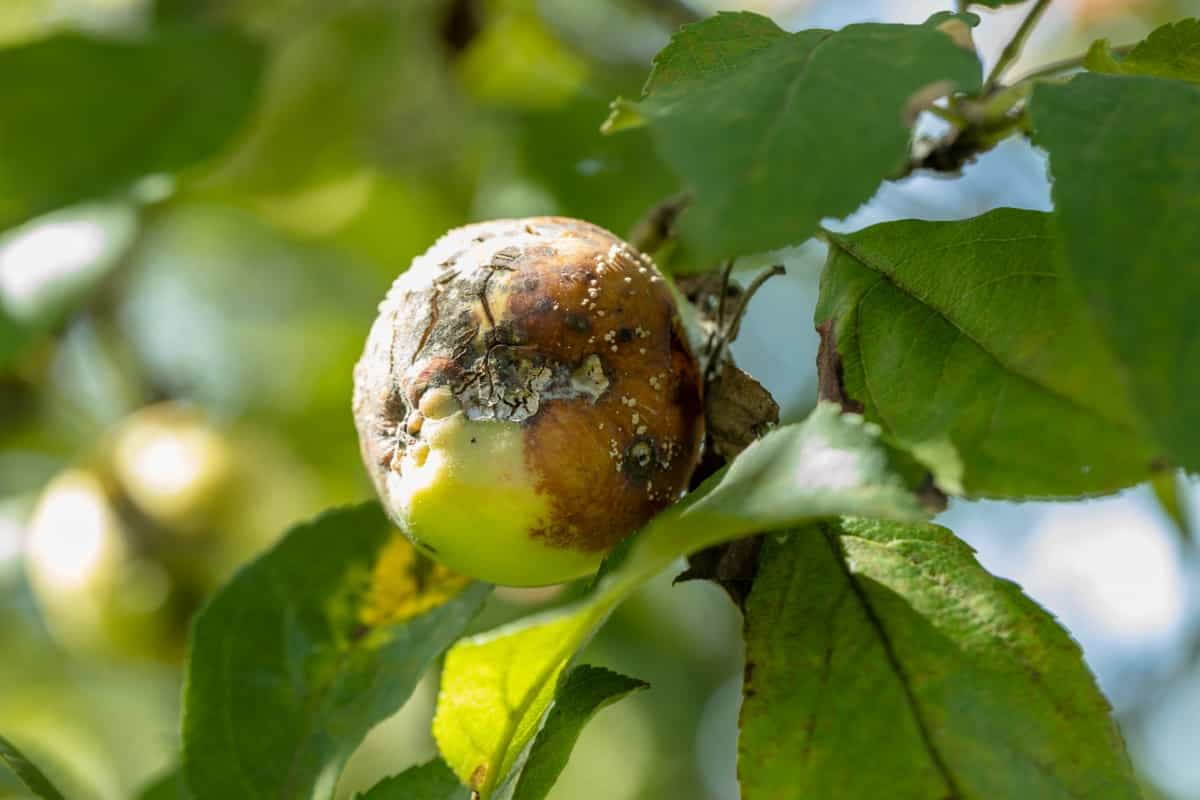
Fruit Rot Causes, Symptoms, and Identification
Fruit rot is a common problem that affects many types of fruits, such as grapes, strawberries, tomatoes, peppers, and mangoes. It is caused by various fungi, bacteria, and viruses that infect the fruit through wounds or lesions. Fruit rot can reduce the crop’s quality and quantity, making it unfit for consumption or marketing.
Symptoms of Fruit Rot
- Brown or black spots on the fruit.
- Softening or shriveling of the fruit.
- Mould growth on the fruit.
- Early ripening or discoloration of the fruit.
- Fruit decay or leakage.
To identify the cause of fruit rot, it is important to look at the type and color of the lesions and spores on the fruit. Botrytis cinerea, for instance, makes lesions that are light tan to grayish and have gray spores. Monilinia, on the other hand, makes dark brown lesions that turn black when pseudosclerotia (fungal tissue) grows on them.
Methods to Prevent or Treat Fruit Rot
- Planting disease-resistant varieties of fruit crops.
- Avoiding overhead irrigation or spraying water on the plants.
- Pruning plants to improve air circulation and remove infected parts.
- Applying fungicides to the leaves and fruit before infection occurs.
- Practicing crop rotation and sanitation to reduce the source of infection.
14 Natural Ways to Treat Fruit Rot
Apple Cider Vinegar and Water Solution: A Natural Fruit Rot Preventative
Apple cider vinegar ingredient that has many health benefits and uses. One of its uses is to prevent fruit rot by creating an acidic environment that inhibits the growth of fungi and bacteria. To use apple cider vinegar as a fruit rot preventative, you will need:
- 1/4 cup of apple cider vinegar
- 4 cups of water
- A large bowl or container
- A clean cloth or paper towel
In case you missed it: Government Subsidy for Fruit Crops in India: How to Avail up to 40-60% under MIDH
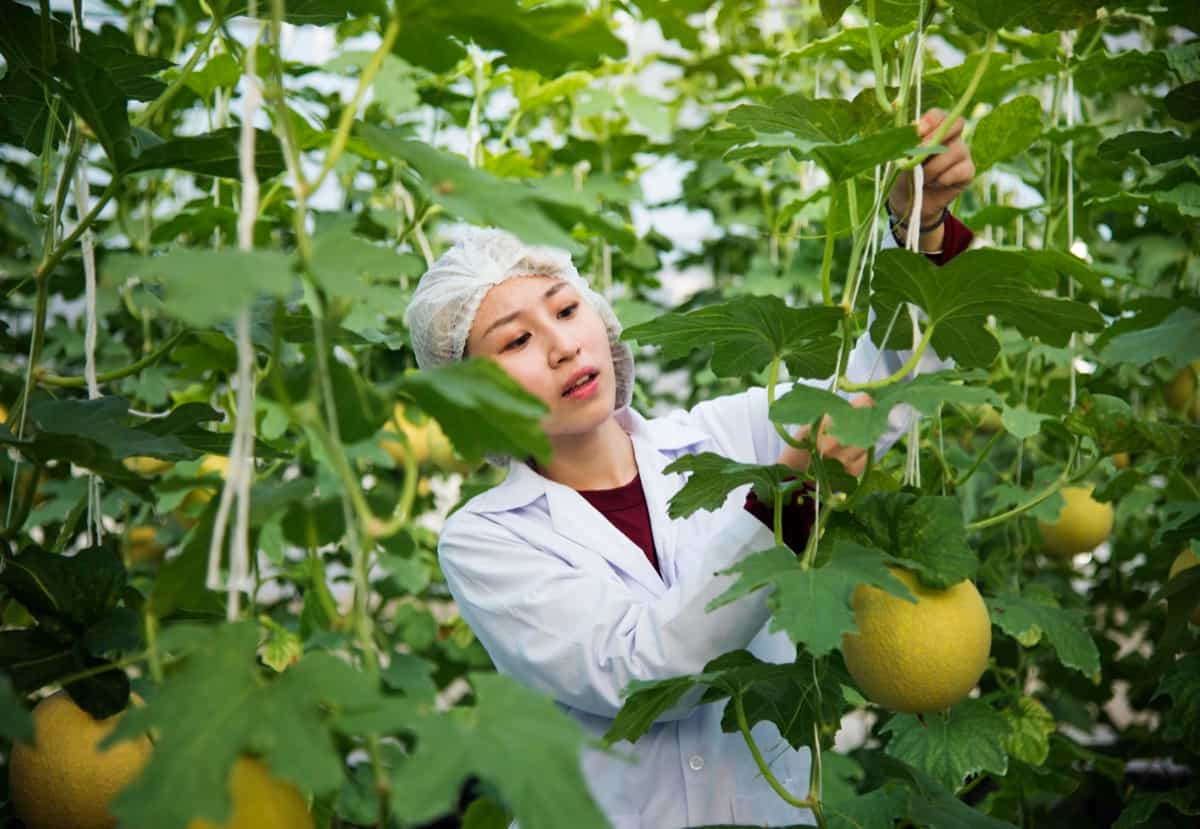
Mix the apple cider and water in the bowl or container. Wash your fruits thoroughly, then soak them in the solution for about 10 minutes. Drain the fruits and dry them with a cloth or paper towel. Store them in a cool and dry place or in the refrigerator. This method works well for apples, pears, peaches, grapes, berries, and cherries.
Baking Soda and Water Paste: A Homemade Fungicide for Fruit Rot
Baking soda is another common household ingredient that can help you fight fruit rot. Baking soda has alkaline properties that neutralize the fruit’s acidity and create a hostile environment for fungi and bacteria. Baking soda also has abrasive qualities that can remove dirt and spores from the fruit surface. To use baking soda as a homemade fungicide for fruit rot, you will need:
- Two tablespoons of baking soda
- 2 cups of water
- A small bowl
- A soft brush or sponge
Mix baking soda and water in the bowl as a paste. Apply the paste on the affected areas of the fruit using a brush or sponge. Leave it on for about 15 minutes, then rinse it with clean water. Dry the fruit well and store it in a cool, dry place or refrigerator. This method works well for bananas, oranges, lemons, limes, grapefruits, and melons.
Garlic and Water Spray
Garlic is a powerful natural fungicide that can kill fungi and bacteria on contact. Garlic also has a strong odor that can repel insects and pests that may carry spores or diseases to your fruits. To use garlic as a natural fungicide for fruit rot, you will need:
- Four cloves of garlic
- 2 cups of water
- A blender or food processor
- A spray bottle
- A strainer
Peel and chop the garlic cloves in the blender or food processor. Add the water and blend until smooth. Strain the mixture through the strainer and pour it into the spray bottle. Spray your fruits generously with the garlic solution and let them dry naturally. Store your fruits in a cool and dry place or in the refrigerator. This method works well for strawberries, raspberries, blackberries, blueberries, cranberries, and currants.
In case you missed it: Easy Homemade Recipes for Garden Plants: Natural and Organic Fertilizer for Vegetables, Flowers, and Houseplants
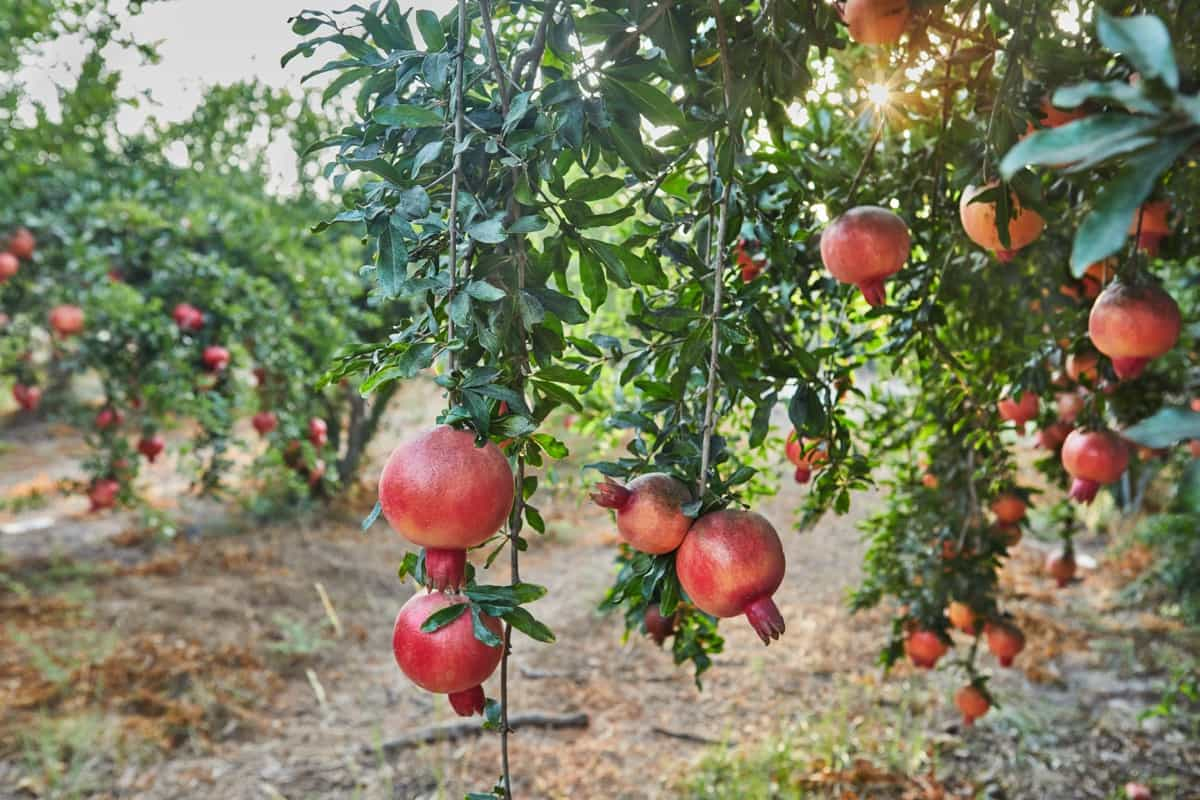
Honey and Cinnamon Paste
Honey and cinnamon are natural antibacterial and antifungal agents that can heal wounds and infections on your fruits. Honey has enzymes that produce hydrogen peroxide, which kills germs and prevents oxidation. Cinnamon has essential oils that inhibit fungal growth and reduce inflammation. To use honey and cinnamon as a natural treatment for fruit rot, you will need:
- Two tablespoons of honey
- One teaspoon of cinnamon powder
- A small bowl
- A cotton swab or Q-tip
Mix the honey and cinnamon powder in the bowl to form a paste. Apply the paste to affected areas of the fruit using the cotton swab or Q-tip. Leave it on for about 20 minutes, then wipe it off with a damp cloth or paper towel. Store your fruits in a cool and dry place or in the refrigerator. This method works well for kiwis, pineapples, mangoes, papayas, avocados, and figs.
Lemon Juice and Water Solution
Lemon juice is another natural fungicide that can prevent and treat fruit rot by lowering the pH level of the fruit and creating an acidic environment that discourages fungal growth. Lemon juice also has vitamin C, acts as an antioxidant, and boosts the immune system of the fruit. To use lemon juice as a natural fungicide for fruit rot, you will need:
- 1/4 cup of lemon juice
- 4 cups of water
- A large bowl or container
- A clean cloth or paper towel
Mix the lemon juice and water in the bowl or container. Wash your fruits thoroughly, then soak them in the solution for about 10 minutes. Drain the fruits and dry them with a cloth or paper towel. Store them in a cool and dry place or in the refrigerator. This method works well for apples, pears, peaches, grapes, berries, and cherries.
Neem Oil and Water Solution
Neem oil is a natural oil extracted from the neem tree’s seeds. Neem oil has antifungal, antibacterial, and insecticidal properties that protect your fruits from rotting and spoiling. Neem oil also has a bitter taste that can deter insects and pests from eating your fruits. To use neem oil as a natural fungicide for fruit rot, you will need:
- One teaspoon of neem oil
- 2 cups of water
- A spray bottle
- A mild soap or detergent
Mix the neem oil and water in the spray bottle. Add soap or detergent to help the oil mix well with the water. Shake the bottle well before use. Spray your fruits lightly with the neem oil solution and let them dry naturally. Store your fruits in a cool and dry place or the refrigerator. This method works well for tomatoes, cucumbers, squash, zucchini, eggplant, and peppers.
In case you missed it: Popular Dwarf Fruit Varieties Grow Easily in Containers: Full Guide for Beginners
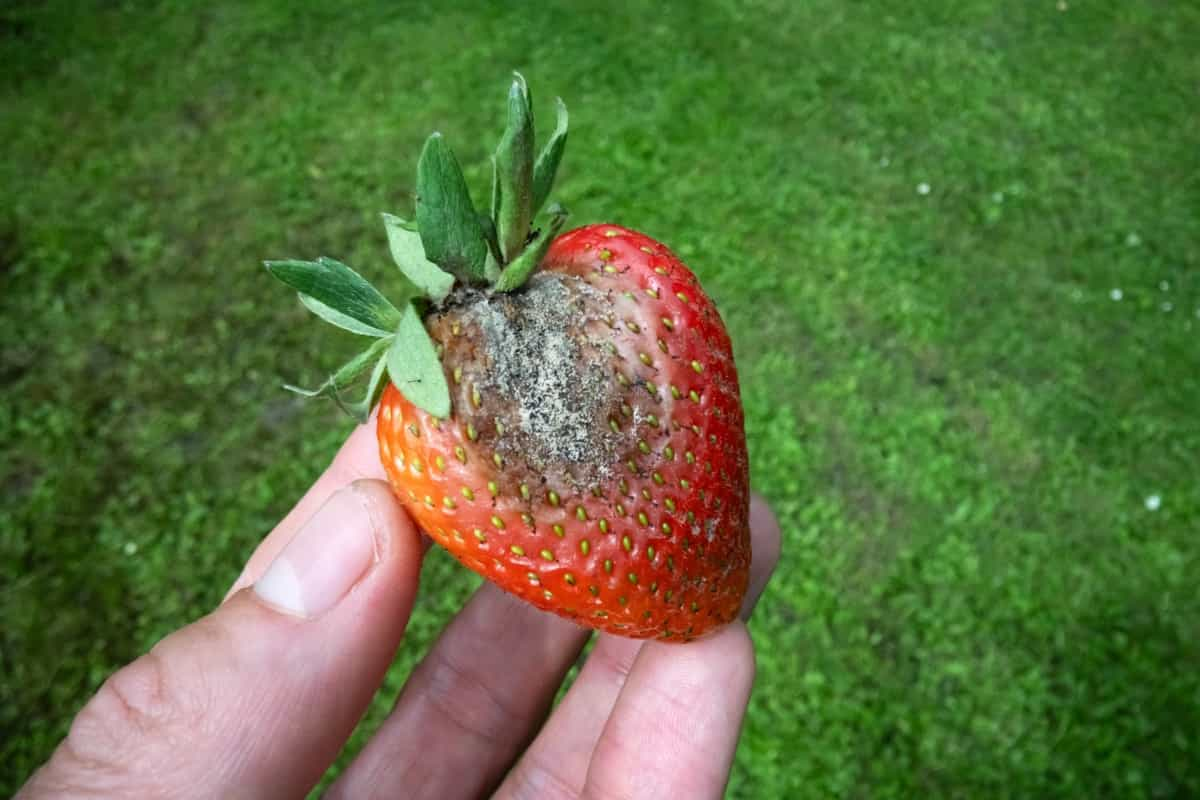
Oregano Oil and Water Solution
Oregano oil is a natural antifungal material that can help prevent and treat fruit rot, a plant disease that can significantly reduce crop quality and make it unmarketable. To use it as a natural fungicide:
- Mix one teaspoon of oregano oil with water and use a spray bottle to spray the leaves and fruit of your plants.
- Repeat this process every week or after heavy rain to prevent fruit rot. If fruit rot does occur, cut off the infected fruit and dispose of it properly.
- Spray the remaining fruit and leaves daily with the oregano oil solution until symptoms disappear.
Salt and Water Solution
Salt is a natural antifungal agent that can prevent and treat fruit rot by creating an unfavorable environment for fungal growth and inhibiting their spores from germinating. It also reduces humidity around plants, which is favorable for fruit rot. To use salt as a natural fungicide, dissolve 1/4 cup of salt in water, fill a spray bottle solution, and spray the leaves and fruit of your plants thoroughly.
Repeat this process every week or after heavy rain to prevent fruit rot. If it does occur, cut off the infected fruit and spray the remaining fruit and leaves with the salt solution daily until symptoms disappear. Salt is a cheap and easy natural fungicide that can improve the flavor and quality of your fruits.
Tea Tree Oil and Water Solution
Tea tree oil is a natural antifungal material that can prevent and treat fruit rot. It has powerful antimicrobial properties that kill fungi that cause fruit rot and can help heal wounds in leaves or fruit lesions.
- Mix one teaspoon of oil with water and fill a spray bottle with the solution.
- Spray the leaves and fruit of your plants thoroughly, repeating this process every week or after heavy rain. If fruit rot occurs, cut off the infected fruit and dispose of it properly.
- Spray the remaining fruit and leaves with the tea tree oil solution daily until symptoms disappear.
- Tea tree oil is a potent and effective natural fungicide that can improve the health and appearance of your plants.
Vinegar and Water Solution
Vinegar is an antifungal agent that can prevent and treat fruit rot by lowering the pH of leaves and fruit surfaces, making them less hospitable for fungal growth. It also removes any fungal spores or residues from the plant. To use vinegar as a natural fungicide:
- Mix 1/4 cup of vinegar with water and fill the spray bottle with the solution.
- Spray the leaves and fruit thoroughly every week or after heavy rain to prevent fruit rot. If fruit rot occurs, cut off the infected fruit and dispose of it properly.
- Spray the remaining fruit and leaves with vinegar solution daily until symptoms disappear.
- Vinegar is an effective natural fungicide that can enhance the flavor and freshness of fruits.
In case you missed it: 17 Gardening Mistakes to Avoid This Summer: For Vegetables, Flowers, Herbs, and Fruits
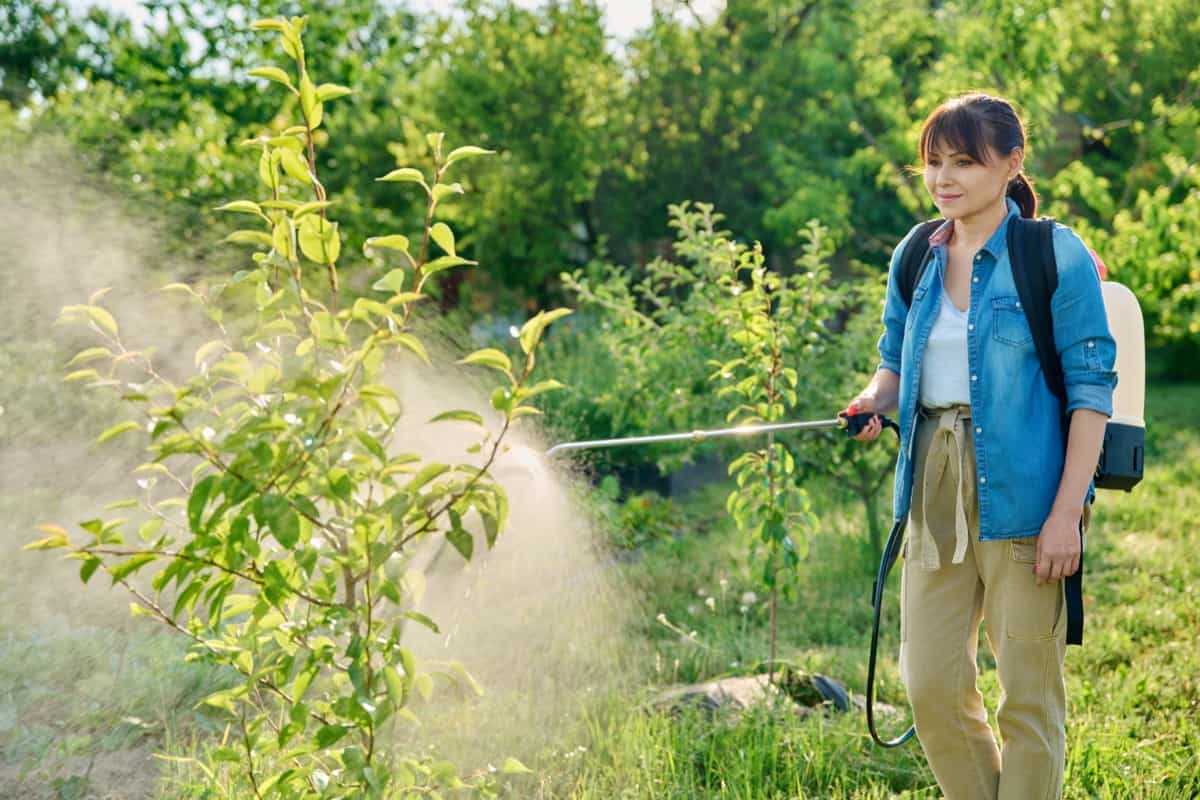
Aloe Vera Gel and Honey Paste
Aloe vera gel and honey paste are natural treatments that prevent and treat fruit rot. They soothe and heal wounds in leaves or fruit lesions, creating a protective barrier against further infection. The paste also nourishes and moisturizes the plant, improving growth and yield. To use this treatment, mix 1/4 cup of aloe vera gel with two spoons of honey in a small bowl, cut off the infected fruit, and apply the paste to the remaining fruit and leaves with a brush. Repeat this process every day until symptoms disappear. This gentle and effective natural treatment protects fruit crops from rot and improves the quality and appearance of fruits.
Cinnamon and Honey Paste
Cinnamon and honey paste is a natural antibacterial and antifungal treatment that can prevent and treat fruit rot. It kills fungi and bacteria that cause fruit rot, reduces inflammation and pain, and stimulates the plant’s immune system. To use this treatment, mix 1/4 cup of honey with two spoons of cinnamon powder, cut off infected fruit, and apply the paste to the remaining fruit and leaves with a brush. Repeat this process every day until symptoms disappear. This spicy and effective natural treatment protects fruit crops from rot and improves the flavor and aroma of the fruits.
Garlic and Cinnamon Paste
Garlic and cinnamon paste is a natural antibacterial and antifungal treatment that can prevent and treat fruit rot. It destroys fungi and bacteria that cause fruit rot, boosts plant circulation and oxygen supply, and repels insects that may spread the infection. To use this treatment:
- Combine 1/4 cup of garlic cloves with two teaspoons of cinnamon powder in a blender or food processor.
- Cut off infected fruit and dispose of it properly.
- Apply the paste to the remaining fruit and leaves with a brush, repeating this process daily until symptoms disappear.
Garlic and cinnamon paste is a strong and effective natural treatment that protects fruit crops from rot and helps deter pests from the plants.
Neem Oil and Cinnamon Paste
Neem oil and cinnamon paste are a natural treatment for fruit rot, a natural pesticide, insecticide, fungicide, and antiseptic. Extracted seeds of the neem tree, neem oil has been used for centuries as a natural pesticide, insecticide, fungicide, and antiseptic. It can kill fungi that cause fruit rot and insects carrying them and heal wounds in leaves or fruit lesions.
In case you missed it: 6 Best Grafted Fruit Plant Nurseries in Karnataka: Sapling Suppliers of Hybrid and High Yield Fruit
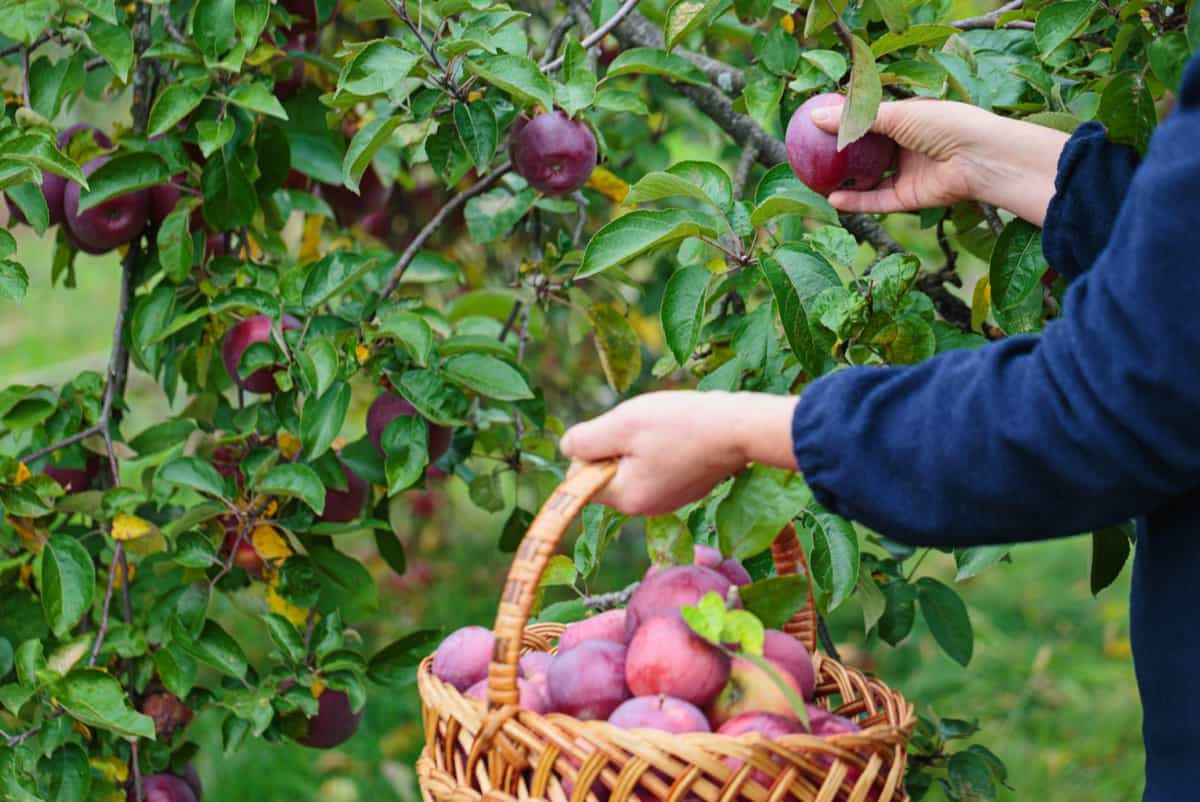
To use this treatment, mix 1/4 cup of neem oil and two teaspoons of cinnamon powder in a small bowl, cut off infected fruit, and apply the paste to the remaining fruit and leaves with a brush. Repeat this process every day until symptoms disappear. Neem oil and cinnamon paste is an effective and natural treatment for protecting fruit crops from rot and improving plant health and resistance.
Conclusion
Safeguarding your fruits from rot is achievable through these 14 natural remedies. Embrace organic homemade solutions to protect your harvest from fungi, bacteria, and viruses. With simple ingredients and methods, you can ensure a healthier, chemical-free approach to preserving your precious fruits.
- Types of Pesticides Used in Agriculture: A Beginner’s Guide
- Economical Aquaculture: A Guide to Low-Budget Fish Farming
- 15 Common Planting Errors That Can Doom Your Fruit Trees
- How to Make Houseplants Bushy: Effective Tips and Ideas
- Innovative Strategies for Boosting Coconut Pollination and Yield
- Pollination Strategies for Maximum Pumpkin Yield
- The Complete Guide to Chicken Fattening: Strategies for Maximum Growth
- Natural Solutions for Tulip Problems: 100% Effective Remedies for Leaf and Bulb-Related Issues
- Revolutionizing Citrus Preservation: Towards a Healthier, Greener Future
- Natural Solutions for Peony Leaf and Flower Problems: 100% Effective Remedies
- Maximizing Profits with Avocado Contract Farming in India: A Comprehensive Guide
- Natural Solutions for Hydrangea Problems: 100% Effective Remedies for Leaf and Flowers
- The Ultimate Guide to Choosing the Perfect Foliage Friend: Bringing Life Indoors
- From Sunlight to Sustainability: 15 Ways to Use Solar Technology in Agriculture
- The Ultimate Guide to Dong Tao Chicken: Exploring from History to Raising
- The Eco-Friendly Makeover: How to Convert Your Unused Swimming Pool into a Fish Pond
- Mastering the Art of Delaware Chicken Farming: Essentials for Healthy Backyard Flocks
- 20 Best Homemade Fertilizers for Money Plant: DIY Recipes and Application Methods
- How to Craft a Comprehensive Free-Range Chicken Farming Business Plan
- Brighten Your Flock: Raising Easter Egger Chickens for Beauty and Bounty
- How to Optimize Your Poultry Egg Farm Business Plan with These Strategies
- Subsidy for Spirulina Cultivation: How Indian Government Schemes Encouraging Spirulina Farmers
- Ultimate Guide to Raising Dominique Chickens: Breeding, Feeding, Egg-Production, and Care
- Mastering the Art of Raising Jersey Giant Chickens: Care, Feeding, and More
- Ultimate Guide to Raising Legbar Chickens: Breeding, Farming Practices, Diet, Egg-Production
- How to Raise Welsummer Chickens: A Comprehensive Guide for Beginners
- How to Protect Indoor Plants in Winter: A Comprehensive Guide
- Ultimate Guide to Grow Bag Gardening: Tips, Tricks, and Planting Ideas for Urban Gardeners
- Guide to Lotus Cultivation: How to Propagate, Plant, Grow, Care, Cost, and Profit
- Agriculture Drone Subsidy Scheme: Government Kisan Subsidy, License, and How to Apply Online
- Ultimate Guide to Raising Araucana Chickens: Breed Profile, Farming Economics, Diet, and Care
- Bringing Hydroponics to Classroom: Importance, Benefits of Learning for School Students
- Ultimate Guide to Raising Polish Chickens: Breed Profile, Farming Economics, Diet, and Care
- Ultimate Guide to Raising Australorp Chickens: Profile, Farming Economics, Egg Production, Diet, and Care
- Silkie Chicken Farming: Raising Practices, Varieties, Egg Production, Diet, and Care
- Sussex Chicken Farming: Raising Practices, Varieties, Egg Production, Diet and Care